Starting August 17, 2024, significant changes are coming to the real estate market due to a settlement between the National Association of REALTORS® (NAR) and the plaintiffs in the Sitzer-Burnett case. These nationwide, mandatory changes will impact how buyers and sellers negotiate real estate commissions. Discover how these new rules, aimed at fostering flexibility and transparency, will affect your buying or selling decisions. Learn how commission negotiations, buyer costs, and agent agreements will evolve, ensuring you stay informed and make the best decisions for your real estate journey.
While there has been a common perception of a standard real estate commission rate, these rates are not fixed and have always been subject to negotiation. New legal frameworks attempt to support flexibility and variability in commissions, ensuring sellers and agents can tailor their agreements to fit specific needs and circumstances. Listing agents and their sellers will now have more in-depth discussions at the time of listing about whether they will or will not offer buyers agent commission, how much compensation they will offer, and how they will negotiate with a buyer related to this issue.
Traditionally, buyers have had higher costs related to a sale than sellers. This includes buyer costs such as their downpayment, lender fees, title insurance, tax escrows, homeowners insurance, and settlement and deed fees. In most instances, this was balanced out by the seller picking up the entire commission cost while still allowing the buyer to have professional representation.
Historically the commission arrangements looked like this:
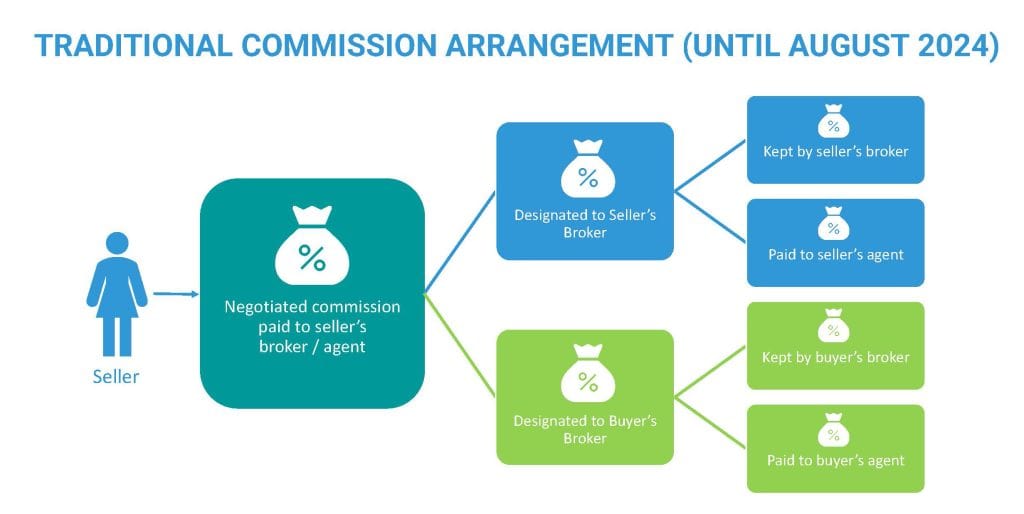
Now, commission arrangements can look a variety of ways:
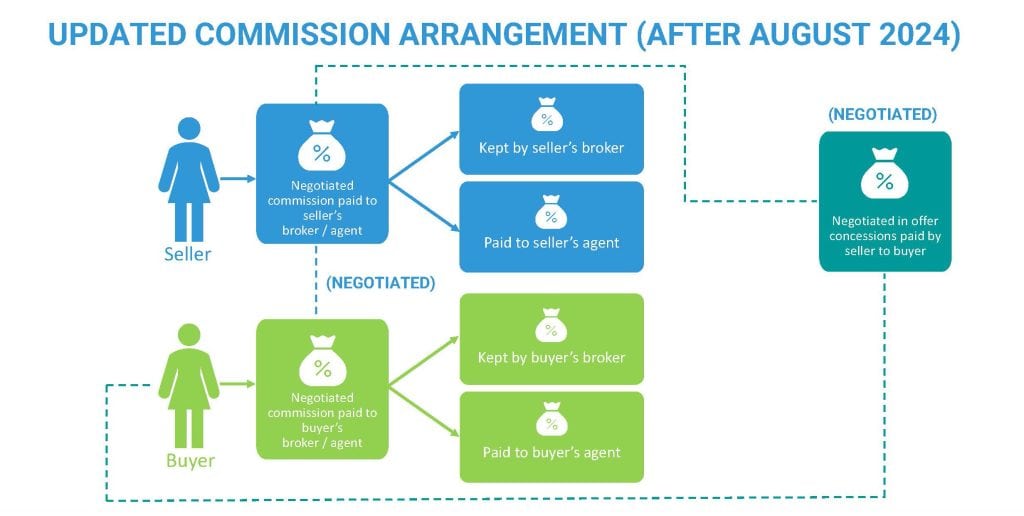
Three reasons a seller may still want to offer buyers agent commission:
- Attract More Serious Buyers: 89% of buyers purchase with the help of a buyer’s agent. Properties that buyer’s agents frequently show are likely to attract more interest from serious buyers who are pre-approved and prepared to make competitive offers. This can drive up the sale price through increased demand.
- Make Your Home More Affordable: Buyers may be more interested in a property if the seller pays the commission, as they don’t need to set aside money for it. Having to come up with more cash for their downpayment and closing costs could be a significant barrier for buyers, even though they may be well qualified to purchase the home. If your home price attracts moderate and lower-income buyers, then you will likely be dealing with buyers who have less money for upfront costs. This may result in a buyer deciding to pass on homes that include the additional costs. Maximizing the number of buyers that view your home can lead to more offers and a higher final price.
- Get a Smooth Transaction: Sellers benefit from having professional buyer’s agents guide their qualified clients through the purchasing process. This will make the transaction smoother and reduce the risk of deal fallthroughs.
While there may be benefits to offering compensation to the buyer’s agent, the additional cost will impact a seller’s bottom line. If the market is competitive, if the seller’s home is desirable or in a high price point that attracts high cash buyers, it may be OK not to offer buyer’s agent compensation. However, it is essential to realize that a buyer may not be interested in paying top dollar for the home and also bear the additional cost of their agent, so don’t be surprised if a buyer asks for concessions or offers a lower price.
In a situation with two equal-priced homes, one offering compensation and one not, the home offering the compensation is, in reality, a lower-priced home from the buyer’s perspective.
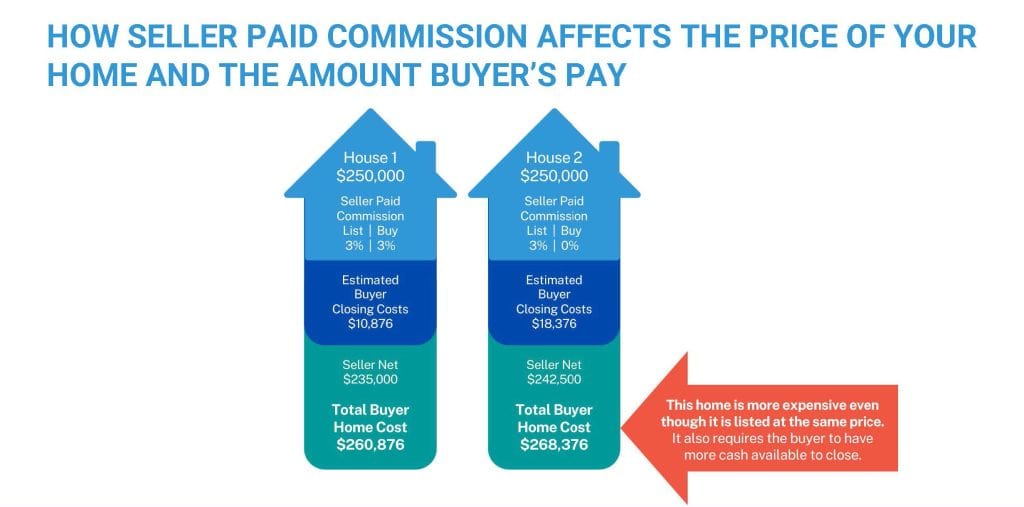
New rules will prohibit the publication of broker compensation or commission offers on Multiple Listing Services (MLS). This move aims to address concerns about transparency and competition within the real estate market. Because agents will no longer be able to identify the compensation structure up-front there will be a variety of ways it may be addressed as part of the offer negotiations.
Some sellers have been willing to consider negotiating financial assistance to help buyers pay for expenses at settlement. This assistance has been referred to as a “seller assist” but may be called “seller concessions” after the 2024 policy changes. On the West Penn MLS, all compensation details will be removed as of August 8, 2024. A new field called “seller concessions” will be added with a simple yes/no checkbox. This is intended to signify if a seller is open to offers that request concessions to help pay for any buyer-related costs. While it will not show an amount, it will at least indicate that the seller may help with the additional upfront costs related to this change.
One change that will affect buyers is that starting August 17, 2024, real estate agents must now have written agreements with their buyer clients before showing homes.
This change is intended to clarify the relationship and expectations between buyers and their agents, ensuring that clients are fully informed about the services provided and the compensation arrangements. These agreements can be for an individual home, for a short term or for a longer term but they must be in place before a home can be shown. This rule ensures buyers understand the cost of their agent’s services and that they will pay their agent directly if the seller chooses not to offer buyer’s agent commission.
While these contracts have always existed in Pennsylvania and have always obligated the buyers to pay their agents when the seller does not, the fact that sellers may now be more likely not to offer buyer’s agent commission makes having them in place and understanding them far more critical.
Since agents can only show homes with an agreement in place, buyers may be presented with multiple agreements if they attempt to work with more than one agent. If a buyer signs multiple exclusive agreements without terminating the previous ones, they could be legally obligated to pay commissions to each agent involved. Buyers must communicate with their agent(s) and ensure that any prior agreements are properly terminated before entering into new ones.
The best practice is to interview agents and select a buyer’s agent that you feel comfortable working with before you start viewing homes. Picking your agent before looking at homes will put you in the best position to have a trusted advisor during your home search. When making what is likely the most significant financial decision of a buyer’s life, buyers must have an experienced and qualified agent who works in their best interest in the transaction.
Buyers may now see increased out-of-pocket costs since they may have to add the cost of their agent’s compensation to their downpayment and closing costs. The cost of your buyer’s agent compensation and other closing costs can be negotiated as part of an offer, but you and your agent must be clear on what you can and cannot afford so that your agent can suggest the best offer structure for your situation.
Significant effects these new rules could have on buyers:
- Added Complexity and Cost: As this long blog post makes clear, the new rules are complicated; add new written agreements and costs to the home-buying process. First-time buyers, and even non-first-time buyers, might find it challenging to understand all their options and negotiate their best offer effectively.
- Reduced Access to Quality Representation: Nobody can work for free so real estate agents may prioritize clients who can afford to pay their compensation, likely leading to lower-quality service or even no representation for buyers who cannot. Seller’s agents are legally obligated to work for what is best for the seller in a transaction; they are not obligated to do what is best for a buyer. Dual agency situations arise when the same agent represents both parties, but they also do not work to the benefit of either party. Neither is a favorable arrangement for a buyer.
- Reduced Negotiation Leverage: If buyers cannot afford to pay their agent’s commission, they will need to request that the seller pay it as part of the negotiation. This can put them at a disadvantage in a competitive market and could lead to less favorable terms in their home purchase agreements.
- Increased Competition for Lower-Priced Homes: Lower and moderate-income buyers often compete for more affordable properties. If these buyers do not have representation, they may lose out to buyers with agents who know the ins and outs of getting their client’s offers accepted.
While all these changes are part of an effort to enhance transparency and competition in the real estate market, it remains to be seen what effect they have on the housing market, agency representation, and housing prices. One thing is clear, however: Both buyers and sellers deserve to have someone represent their best interests in the transaction, and all buyers should have equal access to all homes that meet their needs.
If you are curious about how these changes affect you or want to talk about buying or selling your home, please don’t hesitate to contact me; I am here to help.
















![How To Get Your House Ready To Sell in 2025 [VIDEO]](https://www.bestpittsburghhomes.com/wp-content/uploads/2024/11/gettingreadytosell-500x383.jpg)


















![Find Your Dream Home with an Accredited Buyer’s Representative (ABR®) [INFOGRAPHIC]](https://www.bestpittsburghhomes.com/wp-content/uploads/2024/04/dreamhome-500x383.png)


![Buying A Home? 7 Reasons To Hire an Accredited Buyer’s Representative (ABR®) [INFOGRAPHIC]](https://www.bestpittsburghhomes.com/wp-content/uploads/2024/04/7reasons-500x383.png)

![Your Buyer’s Agent Wears Many Hats [INFOGRAPHIC]](https://www.bestpittsburghhomes.com/wp-content/uploads/2024/04/manyhats-500x383.jpg)
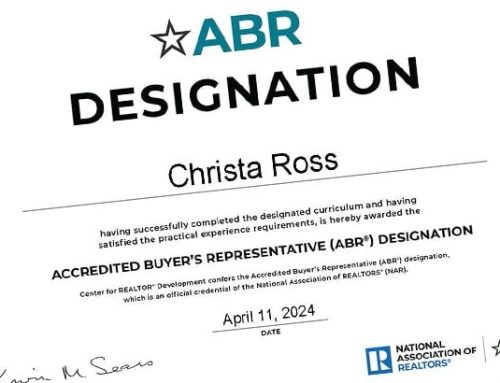


























![Housing Market Forecast for the Rest of 2023 [INFOGRAPHIC]](https://www.bestpittsburghhomes.com/wp-content/uploads/2023/08/housingmarketforcast-500x383.jpg)







![Reasons To Sell Your House Today [INFOGRAPHIC]](https://www.bestpittsburghhomes.com/wp-content/uploads/2023/05/reasonstosellyourhome-500x383.jpg)




















































![More Listings Are Coming onto the Market [INFOGRAPHIC]](https://www.bestpittsburghhomes.com/wp-content/uploads/2022/06/Morelistings-500x383.jpg)











![Spring Cleaning Checklist for Sellers [INFOGRAPHIC]](https://www.bestpittsburghhomes.com/wp-content/uploads/2022/03/infographic-500x383.jpg)


























![What’s Causing Today’s Competitive Real Estate Market? [INFOGRAPHIC]](https://www.bestpittsburghhomes.com/wp-content/uploads/2021/10/infographic_competative-500x383.jpg)




















![Financial Fundamentals for Homebuyers [INFOGRAPHIC]](https://www.bestpittsburghhomes.com/wp-content/uploads/2021/01/financialfundamental_feature-500x383.jpg)




![Expert Forecast on the 2021 Housing Market [VIDEO]](https://www.bestpittsburghhomes.com/wp-content/uploads/2021/01/20210105-KCM-Share-2-500x383.jpg)












![Where Is the Housing Market Headed for the Rest of 2020? [INFOGRAPHIC]](https://www.bestpittsburghhomes.com/wp-content/uploads/2020/08/20200730-MEM-1380x2048-1-500x383.jpg)





![The Housing Market Is Positioned to Help the Economy Recover [INFOGRAPHIC]](https://www.bestpittsburghhomes.com/wp-content/uploads/2020/04/housingrecession-500x383.jpg)







![What You Can Do to Get Your House Ready to Sell [INFOGRAPHIC]](https://www.bestpittsburghhomes.com/wp-content/uploads/2020/04/housereadytosell-500x383.jpg)










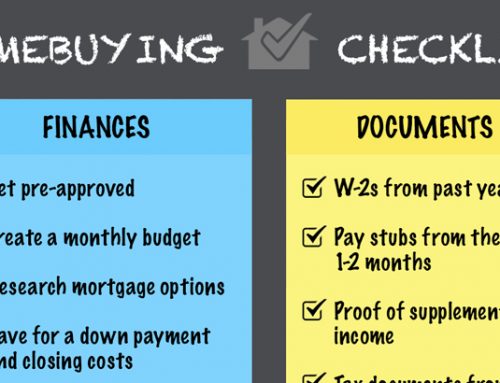







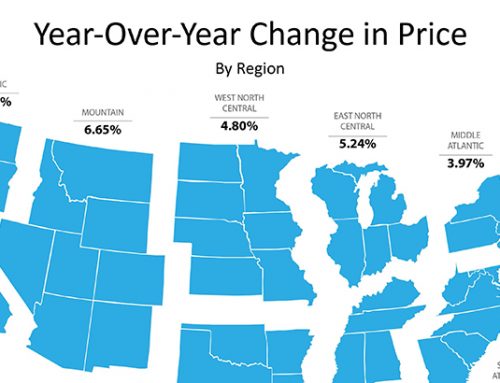






![10 Steps to Buying a Home This Summer [INFOGRAPHIC]](https://www.bestpittsburghhomes.com/wp-content/uploads/2019/07/10stepstobuying_feature-500x383.jpg)



![4 Reasons to Sell This Summer [INFOGRAPHIC]](https://www.bestpittsburghhomes.com/wp-content/uploads/2019/06/4Reasons_KCM-500x383.jpg)





![5 Reasons Why Millennials Buy a Home [INFOGRAPHIC]](https://www.bestpittsburghhomes.com/wp-content/uploads/2019/04/Millennials-Choose-to-Buy-ENG-MEM1-1046x1354-500x383.jpg)



![Existing Home Sales Slow to Start Spring [INFOGRAPHIC]](https://www.bestpittsburghhomes.com/wp-content/uploads/2019/04/existinghomesale-500x383.jpg)
































